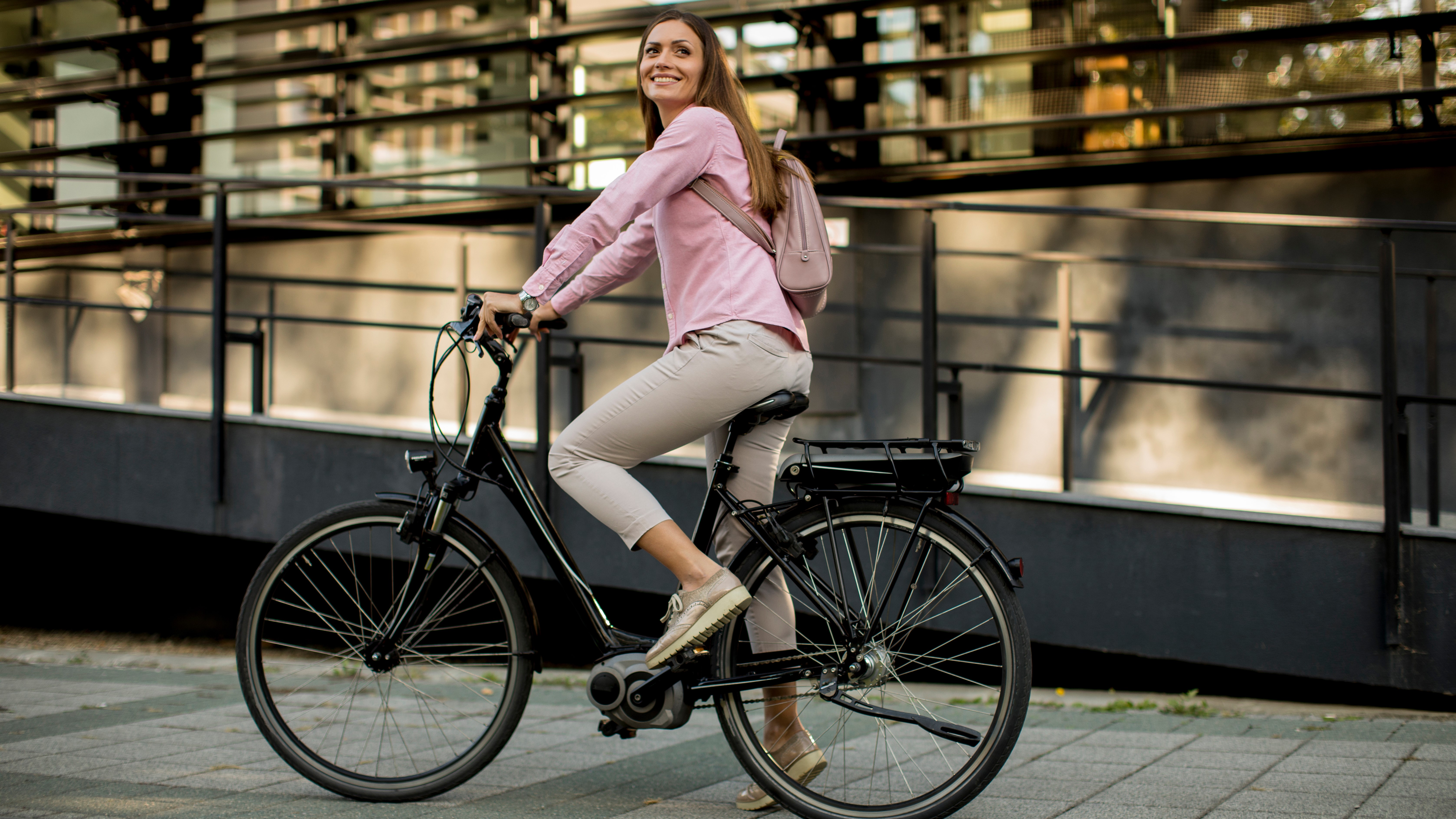Don’t exercise too hard in 2023, according to science
When you work out this year, don’t be afraid to take it easy

Sign up for breaking news, reviews, opinion, top tech deals, and more.
You are now subscribed
Your newsletter sign-up was successful
If you’re one of the many people out there who don’t enjoy exercise, you probably envision working out as a grueling hour of pain and sweating. It’s a punishment for all those unhealthy snacks, a necessary evil but a horrible experience.
Lots of people view exercise this way, and it stops people from lacing up their best running shoes, or closing their rings on their Apple Watch, because they can’t bear the thought of another awful run. However, if you want to make 2023 your healthiest year ever, it’s helpful to know exercise doesn’t have to be hard, or intense. Research says doing something you enjoy, little and often, is the key to making a workout habit stick.
A paper published in the journal Frontiers in Psychology looks at what it takes for people to retain a workout habit. The researchers from universities in the US and Portugal, write “decades of reports have shown that health clubs register high dropout rates, particularly in the first three to six months of practice”.
The researchers concluded that whether you enjoy exercise plays a big part in whether you stick to a habit, writing “enjoyment can substantially affect individual perceptions of [exercise], thus reinforcing it (when perceived as interesting or pleasant) or avoiding it (when perceived as unpleasant, uninteresting, or boring), influencing exercise commitment and engagement”.
So, in order to maintain a steady workout regime, willpower isn’t enough. Exercise has to be enjoyable and fun.

A great way to make exercise enjoyable, especially for first-timers, is to take part in a hobby or activity that gets you outside, such as cycling (whether using a conventional push-bike or one of the best electric bikes), playing a sport you enjoy, or simply walking. Walking to lose weight is incredibly easy to incorporate into your life: it’s low-intensity, low-impact, and you can spend the time getting lost in an audiobook or podcast you enjoy. Apple Fitness+ offers “Time to Walk” audio sessions, in which trainers and celebrities record personal stories designed to be experienced on a stroll.
When it comes to getting burned out and framing exercise as unpleasant, I'm as guilty as anyone: I sometimes force myself to go to the gym, or embark on a demanding run, when my energy levels are feeling low. My Body Battery and Training Readiness scores on the best Garmin watch might be rock-bottom, and I’ll usually fail to lift the amount of weight or hit the time I set myself for that day. When that happens I end the session disappointed and dejected, wondering why I even bothered.
Sign up for breaking news, reviews, opinion, top tech deals, and more.
What helps is a change in mindset. If I really don’t want to go to the gym or run a prescribed amount of distance, I could be switching things up with a short run, perhaps leaving my smartwatch at home. Untimed and unmonitored, I run at my own pace when I do this, stopping and stretching by the river, enjoying the view without fear of messing up my splits on Strava.
Alternatively, if I'm in a bit of a fitness rut, I sometimes make arrangements to go rock-climbing with friends, or book a yoga class. I’m not following my pre-prescribed fitness plan, but I’m still getting exercise and enjoying myself. You might earmark some time to go hiking on the weekend, or squeeze in a low-intensity ten-minute workout in front of your TV, instead of spending an hour in the gym.
If you're just starting out, it's important to know that being flexible with your goals and enjoying easy workouts can help you make movement a part of your life, rather than an occasional punishment for a period of indulgence. If you stop after 20 minutes, when things get uncomfortable, that’s okay. After all, that’s 20 minutes more than you would have otherwise moved today.
Obviously this advice might not suit those training for a specific goal, such as a marathon race, or those on a strict muscle-gaining program. But if you’re struggling to enjoy and stick to exercise, don’t be discouraged: take it easy on yourself, find an activity you like, and stop when it becomes unpleasant. Science says you're more likely to come back for another go.
- This article is part of TechRadar's Get Fit For '23 week

Matt is TechRadar's expert on all things fitness, wellness and wearable tech.
A former staffer at Men's Health, he holds a Master's Degree in journalism from Cardiff and has written for brands like Runner's World, Women's Health, Men's Fitness, LiveScience and Fit&Well on everything fitness tech, exercise, nutrition and mental wellbeing.
Matt's a keen runner, ex-kickboxer, not averse to the odd yoga flow, and insists everyone should stretch every morning. When he’s not training or writing about health and fitness, he can be found reading doorstop-thick fantasy books with lots of fictional maps in them.